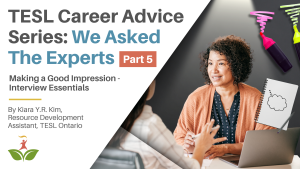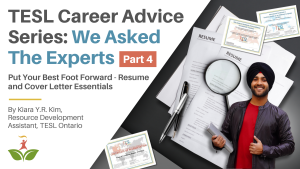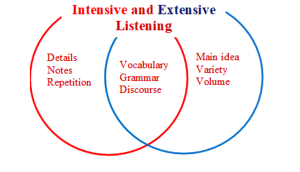
The EAP programs in Ontario vary considerably in many regards (e.g., curriculum), but what connects them is a shared interest in student retention and seeing EAP learners progress to becoming students enrolled in diploma, certificate, and degree programs.
One method that has been shown to increase student performance and retention is Supplemental Instruction (SI). Though SI has been used for decades in a variety of post-secondary programs, it is very rarely used in EAP contexts. So, in this post, I will present the case for implementing SI in Ontario EAP programs.
Continue reading







